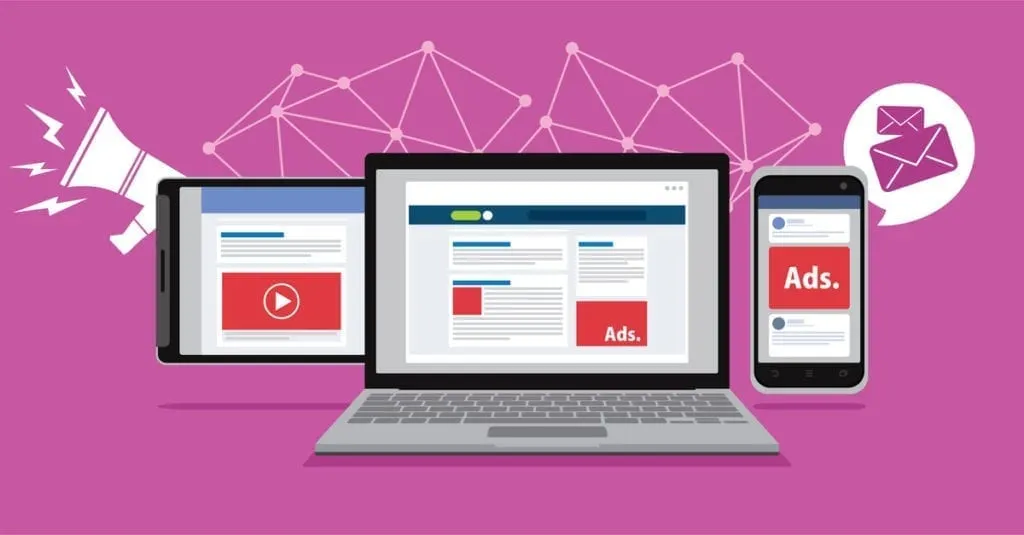So you’ve gotten your license and signed with a firm. However, that’s just the first step in your career journey.
The biggest challenge you’ll face is building your brand through prospecting.
And there’s no better way to do this than by using real estate marketing.
What Is Real Estate Marketing?

Marketing is defined as the management process through which goods and services move from concept to customer. As a real estate agent, your main goal is to reach potential clients as efficiently as possible.
Over time, you’ll organically build a book of business that will involve word-of-mouth referrals and repeat business. However, the first few years will be spent working to establish your client base.
Just a warning: this is not going to be easy. However, it’s the persistent agents that succeed, and once you establish yourself, you may find that you need to turn down business. And how do you get to that point? By making a solid marketing plan.
You can be sure we’ve included every imaginable marketing idea to ensure your business has the best shot at success.
So read on to learn what real estate marketing is, the best advertising channels to promote your brand, effective lead generation tips, and everything else you need to know.
The 4 Ps Of Marketing
If you’ve taken an intro to business class, the “4 Ps” are not a foreign concept. They not only define marketing but also provide guidelines to ensure your strategy for reaching new clients is as strong as possible. Let’s dive in.
Product: The first of the 4 Ps is the product you’re wanting to sell. This can be either a good or a service, and it is essentially just the thing you are trying to sell. As a real estate agent, your expertise and guidance are what make you valuable, and this is what you’re selling to your clients.
Price: Although things like margins and break points don’t affect you in the same way they would a manufacturer, it’s still important to know where to set your prices.
After all, you have to pay your car insurance, E&O insurance, continuing education, and other things to keep your business running. If you don’t charge enough, you’re unable to cover your costs. And why do something if you’re not going to make a profit?
Place: This simply means where someone will buy your services. As an agent, you won’t be selling things in a store, as you’re exclusively selling a service. However, prospects must know how to buy your expertise, so being accessible by phone, email, and a website is critical. We’ll dive deeper into this later on.
Promotion: The last piece of the real estate marketing puzzle is figuring out how to promote your services to the public. Traditionally, agents used signs, phone books, and good old word of mouth.
While reputation is important, there are other services that can be used to spread awareness of your business. And you can bet we have some ideas to help you stand out from the crowd without needing to spend tons of money on overpriced software.
Creating Your Brand
If you’re working for a big firm, you won’t have to worry about this. However, if you plan to open your own firm or start a team, you’ll first want to make your own eye-catching logo.
Not only will this appear on every piece of marketing, but it is perhaps the best way to convey your brand identity.
If your logo looks like it’s from the 1990s, your entire brand is devalued. On the other hand, it it’s hip and chic, you’ll likely attract a trendier crowd.
Just remember that marketing your real estate business is all about extending your personality to prospective clients. You want to base your entire strategy around who you are and nothing else.
If you have a fun, bubbly personality, then use a logo with a playful font and bold colors. But if you’re serious and strictly professional, use a design that reflects this. At the end of the day, your business is built around you, so let it show through your marketing.
Promoting Your Services

As you talk to colleagues or even search Google for marketing channels, you’ll notice there are many options available.
Before buying any lead generation products, however, we suggest taking time to learn the various types and how they work.
We’ve broken down the most popular ones and will dive deeper into each later in this article.
Business Cards
After choosing your logo, set your eyes on the most effective marketing tool—the trusty old business card.
They’re small, portable, and inexpensive. Most agents I know carry around 5 or 10 in their pocket and hand them out whenever the moment is right.
In fact, we think they are so important that you should buy some right after getting licensed and signing to a firm.
Given that 500 cards can be had for only $10 or so, business cards are easily the least expensive form of real estate marketing. Even better? We’ve made free business card templates for you to use.
Yard Signs
We did a full write-up on yard signs, and given it’s tried-and-true history, we’d be silly not to include this first.
There are many different types of signs, but they all attract attention from people driving by a property. If you’re buying houses, use the corrugated plastic ones to put on the street corner.
And you’re listing a property; put a nice metal-frame sign in the yard. There’s not too much to cover here, as it’s a simple concept. But most times, simple is better, and you can be darn sure that signs are as simple as it gets.
Even better? They are relatively inexpensive, especially when you buy in volume. No wonder real estate professionals make these a staple in their marketing plans.
Sign Riders
Take your lead generation and marketing efforts up a notch by adding a sign rider as well. One nifty real estate text lead capture software product that texts you curbside leads from sign riders is Digital Flyer from Pro Agent Solutions.
The prospective home buyer types a simple text message listed on the sign. A message is immediately sent to the listing agent to notify them of a lead for their listing.
Simultaneously, the prospective buyer also gets a text with information on the property, including price, pictures, and a description.
Direct Mail

One of the most effective methods of establishing your real estate brand is through direct mail. This can be a simple mailer with your name and number or a detailed market analysis of a neighborhood.
Better Homes and Gardens recently sent me the latter, and I was very impressed with the level of thought that went into the letter.
We suggest reserving the very specialized mailers for a weak market, as it costs money to print and mail cards, especially in small quantities. You’ll get a volume discount when printing in bulk, and generic cards are best sent in bulk.
Here are a few direct mail examples:
- Open House: An easy way to spread the word about an open house, these cards are simply sent in addition to using a yard sign.
- Just Listed: Another specialty card lists your contact information along with some photos of the property. These are best used on high-end properties where the margins are higher.
- Recently Sold: Best used for specific neighborhoods, this gives a seller an idea of what their home is worth. And we can assure you, nearly everyone wants this information.
- Currently Renting: This type of card takes some creativity or a carefully-fostered relationship with a property manager, as mailing lists for renters aren’t easy to come by. However, you can always target an apartment complex for easy picking.
- Thinking of Selling Your Home? While these mailers can be sent on their own, we like the idea of pairing them with a “recently sold” card, as they include information and a call to action.
- Expired Listings: Be careful with this one. Calling on expired listings isn’t illegal as long as the listing agreement has expired. Aside from that, there are many software providers that include this information, and it makes more sense to call the owner than to send them a letter. Remember, custom mailers can be expensive if not sent in bulk.
- New Agents: New to the industry? Introduce yourself! Along with benches and billboards, postcards are a great way to get your face in front of an audience. This is a long-term play because most prospects won’t immediately list their house. Have a catchy logo? Attach your branding to it so prospects will always have your information handy.
- Recipes: While not obvious, if you come up with a delicious recipe, someone may put it on their fridge. Then they’ll see your name every time they make that dish and will keep you in mind when it comes time to list.
- Holidays: Although these cards are generic, they keep your name in the forefront of client’s minds.
- Local Guides: Everyone wants to know about the area in which they live, and a local guide is the perfect way to do this. If there’s a new development around the corner or a business they should know about, list it. This not only establishes trust but also shows you know what’s going on in the area and are part of the local community. We think this is another great addition to the “recently sold” guide we listed above.
Tip: Target the neighborhood in which you live. Prospects like to deal with locals, and living around the corner from someone will help establish trust.
Social Media

Nowadays, it seems like everyone is on some form of social media platform, and this is one of the easiest ways to reach potential clients.
Keep in mind that many young people are beginning to buy homes, and having a strong social media presence shows you’re hip.
After all, nothing screams washed-out realtor like a 90s haircut and a perm. Everyone has that agent in their office. Make sure this isn’t you by checking out some of the services below.
This is a great platform for advertising your real estate services because it puts your ad straight into someone’s news feed. Even better, it stays there.
Unlike a postcard, where someone can just throw it away, a social media user may see your ad time and time again.
Another benefit is that there are a mind-boggling number of options with which you can filter your audience.
This includes things like age, familial status, relationship status, income level, and a bazillion other options. However, there’s one feature that is real estate-specific that I think is awesome, and it’s called “Likely to Move.”
Essentially, this takes a user’s cookies and checks to see if they’ve been looking at homes for rent or sale. If they’re likely to move, they’ve been on Zillow, Trulia, or any other site offering housing for sale or rent.
I’ve used this for properties I manage, and it works incredibly well. In fact, it works so well that around 25% of our leads come from social media marketing.
For extreme targeting like this, you’d think it was expensive. But it’s really quite reasonable. I recently ran a targeted ad for a business I own and was able to reach 500 people per day for 30 days for only $400.
Additionally, the number of people interacting with specific Facebook pages is impressive. You can share memes, funny pictures, and other things to cultivate your own following.
The Facebook-owned platform on which users can share photos is a great way to share your property listings. You are also able to tag locations and phrases, known as “hashtags.”
This is particularly useful when targeting specific areas. For example, say you are listing a home in Fair Acres. You can post photos of the beautiful home along with the hashtag #FairAcres, so anyone searching for that term will see your name and listing. Pretty cool, huh?
In our digital age, memes are very popular. If you come up with a meme that goes viral (make sure to put your brand in the bottom corner), you’ll spread your brand that much more.
NextDoor
While relatively new, this app creates a network of neighbors, and as of 2019, they’ve rolled out a feature on which you can advertise your real estate services and listings.
They are still beta testing this and were unable to give me set pricing, but it’s worth a look.
Real Estate Marketing Software

It seems like every month brings a new real estate CRM solution. While it’s hard to list all of them, we’ve included our top 8 software picks, as each has something unique to offer.
1. Follow up, Boss
This CRM platform is geared toward streamlining communication after leads have been generated, hence its name.
At the product’s core, it takes leads from over 200 providers and funnels them into their communication product.
By optimizing your workflow, you’re most likely to connect with prospects as the system follows up before you lose the lead. Pricing is reasonable and starts at $49 per month for the basic package.
During your first few years, you’ll be very busy generating leads, and this is a great tool to maximize your time.
2. Real Geeks
Founded by Jeff Manson, this app seeks to generate high-quality leads for his own real estate business.
He brings this to you by offering an IDX (Internet Data Exchange) website that allows users to search properties by area. Then, it captures their leads and sends them to you to follow up.
Features include a market report, home valuation, agent, property, and coming soon landing pages. Additionally, you’ll have access to email drip campaigns and an SMS autoresponder.
While other sites let you create your own website from a template, Real Geeks makes those services look weak in comparison. Pricing starts at $199 per month. If this sounds like your option, check out our company review now.
3. BoomTown!
This somewhat new entrant to the market offers 4 core products: Launch, Core, Grow, and Advance.
Each comes with an IDX website, but features like drip campaigns, SMS autoresponders, social media integration, and transaction management are all accessible as you climb up the product ladder.
Essentially, this service makes a WordPress website that lets you target organic search traffic via your blog. If you want to be more hands-off, their in-house team will manage paid advertising campaigns and organic searches.
While this is a good theory in concept, feedback from realtors I know has been that it’s very expensive (my colleague was paying around $5,000 per month) and is best suited for agents who already have cash flow to invest.
4. Zillow Premier Agent
Let’s face it: as a realtor, you hate Zillow, but it’s a necessary evil. Yes, their Zestimate is almost always wrong. Yes, they are trying to be an iBuyer. However, most prospects turn to their site during their home search. So why not capitalize on that?
At its core, this service takes people searching its site and makes you a preferred agent with whom they will connect. If you’ve never been on this site, there is an option to contact an agent.
A shopper clicks a button, Zillow connects with them and verifies the lead, and then it’s sent to the Premier Agents.
The kicker is that the service is tiered based on how many agents are paying for it. You give Zillow a budget, and whoever pays the most for the lead gets first dibs.
If you’re targeting high-dollar homes, chances are you’ll have to shell out between a few hundred and a few thousand dollars for the lead.
Does it work? That varies by who you ask. I’ve spoken with a team lead who closed $10 million in sales, and he swears by it. He has an open checkbook and big pockets, though. If you’re a team leader with a big advertising budget, this may be for you.
But if you’re just out of school and have no cash flow, we suggest looking for better options. Click now to read our complete rundown on their CRM platform.
5. Zurple
This product could be Real Geeks’ twin brother, as it uses an IDX website to target prospects searching by area. Then, it’ll send automated follow-ups via email to get your conversation started.
It’s also not available in every market, and you must contact them to see if it’s even available for your area. Our research found pricing starts at $349 monthly per agent, with a few other small fees.
Just like the other premier services above, it’s worth exploring if you’re an established agent who can afford to spend the extra cash to generate leads, but we suggest organically growing your book while you’re still green.
6. REDX
REDX is a prospecting-specific software platform that aggregates FSBO, FRBO, preforeclosure, and expired listing leads.
Using their Storm Dialer technology, you’ll be automatically handed over to the prospect who answers. If they don’t, you don’t have to spend time leaving a voicemail. You’ll even get MLS access included in your package.
Online reviews are generally good, but common feedback was that a chunk of the numbers listed were not all accurate. However, given the nature of the information, it’s as accurate as one can expect, and there are plenty of other tools available to complete the puzzle.
And the price isn’t bad either. Starting at $59.99 per month, it’s a good option for agents looking for quality leads without paying out the nose for them.
7. Realvolve
This product sets itself apart by catering to new agents by automating workflows during busy seasons. Essentially, it allows you to digitize contacts, property, and listing-specific information and automate communication throughout the sale process.
If you’re thinking it sounds like a glorified Excel database, it is. But it’s also much cleaner and geared toward real estate professionals. And let’s face it, you have a lot of information that you need in one place.
Realvolve takes all that information, sorts it, and makes it easy to search later on. We think the automated communication module is pretty neat too.
While this product isn’t designed to capture leads, it’s designed to make your workflows more efficient, which frees up your time and energy to focus on the things that matter—prospecting.
Pricing starts at $49 per month and tops out at $233 for 10 users and an assistant, so pairing this with one of the cheaper options on our list makes this a good product to consider.
8. Placester
Similar to RealGeeks and Zurple, this service offers website templates and converts incoming leads into prospects. However, it’s goal is to be less expensive than either company. While the features are the same, they are offered in the form of add-ons.
Realtors get intro pricing of $99 per month plus a $99 setup fee. This gets you one real estate website, customizable landing pages, and email marketing tools.
However, features like automated follow-up, data migration, and access to their content library come at an extra cost.
We love this structure as it gives new realtors access to their own website without requiring them to mortgage their house to pay for it.
The software still captures incoming leads, so all it takes is a little hard work to capitalize on that. This platform is definitely worth a look.
Online Ads

Last but not least, online ads are highly competitive but still worth considering if you’re a team leader or owner of a real estate firm. Search engines like Google or Bing allow you to pay for ad space that will show up before organic search results.
For example, you may be searching for “homes for sale.” You’ll likely see 2 or 3 results at the top of the page that say “ad” next to them.
These results are promoted, and clicking the ad will charge the person promoting their service a fee.
We don’t suggest taking out ads as an individual agent, as they are expensive and there are more efficient ways to reach your target audience.
Plus, most people are looking for properties on specific websites like Zillow rather than googling their search. While online ads are great for companies like restaurants, they aren’t ideal for real estate agents.
The only exception that I can think of is house flippers. Often times, motivated sellers will do a Google search for terms like “sell my house fast in Omaha.”
Flippers have done well promoting their template websites via these channels. However, that’s the only time I can see ads being worth the cost.
How To Choose Your Advertising Method

While there are many advertising channels to choose from, you must know your demographic. If you’re targeting senior citizens, you’re unlikely to get too many leads from Facebook ads.
And if you’re targeting millennials, a newspaper ad may not be your best choice. For this reason, a little bit of research, market knowledge, and common sense go a long way.
Conclusion
If you’re going to be a successful real estate agent, you need a solid marketing plan. With this in place, you’ll not only capture leads but also establish your reputation as a professional agent.
So whether you’re a new agent or just want to revamp your brand, we hope our tips on real estate marketing have been helpful.

